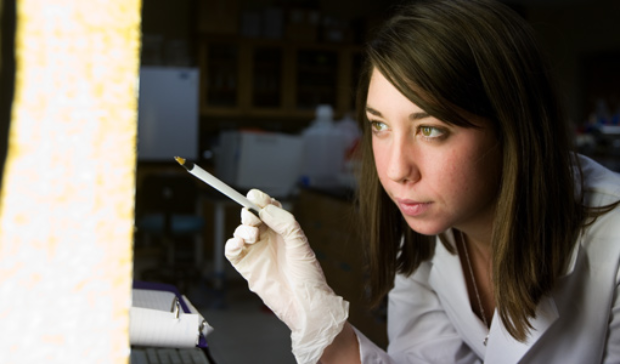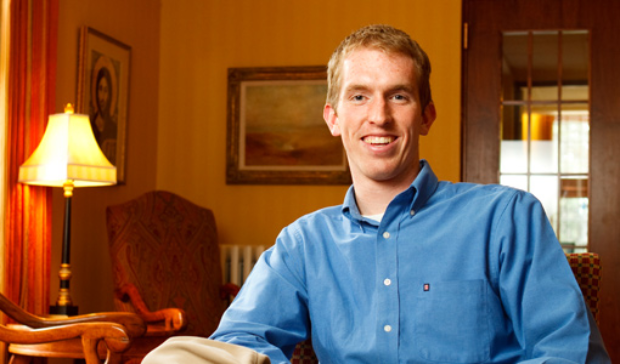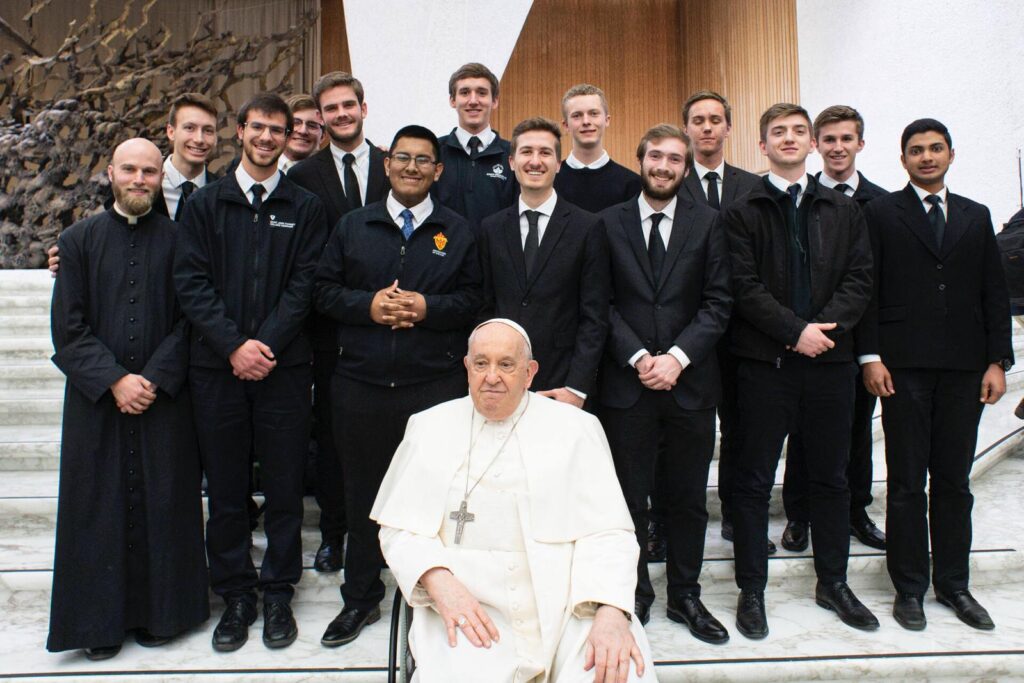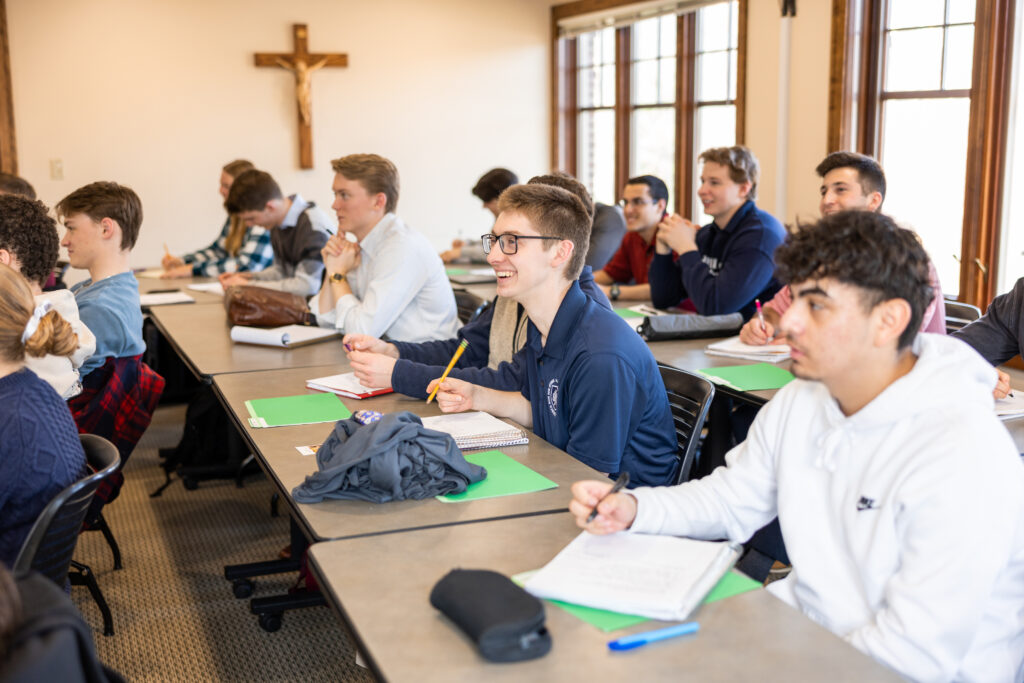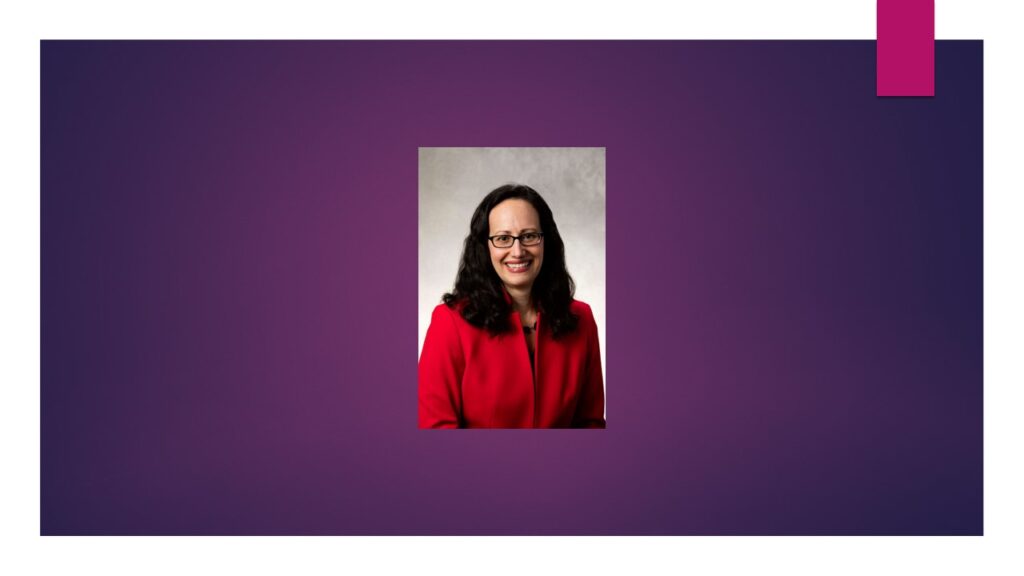One of the questions prospective students in almost any liberal arts degree program ask is: "What do you do with a degree in … ?" Catholic Studies students and alumni, both from the undergraduate program and the graduate program, embrace a wide variety of opportunities to engage the world with their faith and a perspective grounded in the Catholic intellectual tradition. Here are the stories of three undergraduate alumni and a graduate student who are using Catholic Studies to engage the world.
Susan Slattery: ‘I hope to be a witness in my field’Susan Slattery graduated in 2008 with a double major in Catholic Studies and biochemistry. Slattery is currently a student at Loyola University, Chicago, Stritch School of Medicine. She plans to work as a physician. "While I don't know what type of medicine I will be going into, I am looking forward to the opportunity to serve individuals and families in this role," she says. "I hope to be an excellent doctor in my approach to the patient and provide well-rounded care and support." She also plans to complete the Honors Program in Bioethics and Professionalism. Her thesis will examine the topics of helping, caring and healing.
Slattery was involved in the Leadership Interns program while at St. Thomas. She calls it "one of the best reminders" of the baptismal call to be a witness of faith. "The opportunity to meet with national Catholic leaders has helped me to realize that this beautiful and noble idea of living out faith in today's society is very doable. With this in mind, and the grace of God, I am more consciously making choices to be this witness and build the Church within my medical studies, interacting with others and prepping for the future."
One particularly important experience for her was meeting Mary Ann Glendon at the Bernardi Residence. Slattery, who was studying in Rome at the time, says, "I was struck by her presence, actions and words of wisdom that she shared by meeting with the group." Slattery has since continued to follow Glendon as she witnesses her faith to the world and says the she is "deeply impressed at her consistency in being a world leader, but particularly a leader within the Church. I hope to be a witness within my field and community as consistently as the individuals brought forth within the Leadership Interns program and as Glendon displayed."
Jim Schultz: Working to Use His Gifts for GoodJim Schultz graduated from St. Thomas in 2008 with a double major in Catholic Studies and philosophy and a double minor in Greek and political science. He is now a student at Harvard Law School. "There are a handful of areas of law in the United States that I am particularly concerned about," he says, "and I intend ultimately to pursue a career focused on influencing public policy in these areas." He ties his experiences within Catholic Studies to his career goals, saying that they have "encouraged me to make larger plans for my life. As I deepened my understanding of the Christian idea of vocation … and participated in programs like the Leadership Interns, I began to see a broader set of possibilities for how I might use my gifts for good."
Schultz sees the Christian idea of vocation as the antithesis of what the world often teaches. "There is a cynicism present today that says that an individual life is destined to be without impact. Catholic Studies instilled in me the conviction that, for me and for every person, there is a unique and important work that has been set aside, that there is a calling for each whose completion is of great worth."
As a law student, Schultz appreciates how the Catholic tradition in which he was grounded through Catholic Studies has helped him answer "the big questions that consume lawyers' minds," such as the proper goals of punishment, the merits of economic regulation and the just treatment of the child in the womb. "On many occasions I have been able to put forward a more complete defense of the Christian vision on a subject, because I explored seriously and deeply within Catholic Studies the intellectual foundations upon which the Christian vision rests."
Schultz describes the two years he lived in the Catholic Men's House as "an extraordinarily formative experience for me. The house demands much: daily Mass and common prayer, a firm commitment to study and a commitment to the fraternity. … As I face the many challenges that work as a lawyer brings, many of which test one's character and convictions, I am in a far better position to respond to them as a Catholic, because I was formed within the Catholic Men's House."
Jessica Zittlow: Trying to Close the GapIn her blog "Minding the Gap," Jessica Zittlow quotes George Weigel: "All over the London Undergrounds … riders are confronted with an admonition: 'Mind the Gap.' … We all live in the 'gap' between the person we are today and the person we ought to be." Zittlow continues, "Here I am, trying to get from where I am to where I am supposed to be." To do that, she has taken off time from the master's program in Catholic Studies to volunteer in Rwanda.
Zittlow's volunteer work is being done under the auspices of the Marayundo Initiative, which is dedicated to improving education in Rwanda. She teaches English at the Akilah Institute for Women. Rwanda recently changed its official language from French to English. As Zittlow explains, "While the shift may be feasible on paper, the reality is that it is a tremendous challenge. Imagine being a teacher and one day being told that by a certain date you have to begin teaching in another language you barely know. Or spending years in school only to be told that, unless you have some basic understanding of the new language you're supposed to learn, you'll have difficulty finding a good job. This is the kind of hurdle that many Rwandans are facing."
The Akilah Institute is a new post-secondary vocational training and leadership institute that specializes in hospitality and tourism. Many of the women attending the institute are orphans of the 1994 genocide.
When asked, "Why Rwanda?" Zittlow answers, "Divine providence." She had already felt a call to volunteer when she became interested in a song about Rwanda, "Albertine" by Brooke Fraser. The song moved Zittlow to research opportunities to teach English in Rwanda, and from there she learned about Marayundo Initiative.
Zittlow's blog documents the joys and difficulties of her experience, from her statement "My love affair with Africa has begun" within 24 hours of arriving to her reflections on maintaining joy "when reality sets in." She is relying on God as she works to close the gap in her life.
Jim Stokman: Humble Work Sustained Through the Knowledge of ChristJim Stokman and his wife, Stephanie (Steph), née Price, both graduated from St. Thomas in 2009. Jim had a double major in biochemistry and Catholic Studies, and Steph majored in international studies and French. In September, they moved to Chaclacayo, Peru, where they worked as volunteers at Hogar San Francisco de Asis, which Steph described as "a home clinic for sick and destitute children." They returned to the states last month, for Jim to attend medical school at the University of Minnesota.
In Steph's words, Jim sees his major in Catholic Studies as "an education in the essential makeup of the human person, beyond the molecular components." Steph, who took three Catholic Studies classes while at St. Thomas, notes that during his semester in Rome Jim's course in Fundamental Moral Theology was "especially fascinating and formative in looking at morality not as a list of precepts but as a relationship with Christ. As was the case with me, one of the most striking aspects of Jim's Catholic Studies' education was the pertinence of class subject matter to his life."
Like Slattery and Schultz, Stokman was a Leadership Intern. Jim says, "What I was being taught was far more than a degree in Catholic Studies. It was a foundation upon which I could more humanly study medicine and begin a family."
Steph describes their work in Peru as "humble: serving meals and washing dishes, assisting with homework, helping the less ambulatory patients to get around the house and go to the bathroom, taking children to Lima for their medical appointments and, quite simply, being a loving presence for them while they are at the Hogar. Before the tremendous need that is each one of these children, our work is small, hardly the solution to their hardships. What sustains us in our efforts, then, is not the hope that we may do away with the kids' pain and make their lives easier; rather, what sustains us is the knowledge that through us, it is Christ who embraces them."
